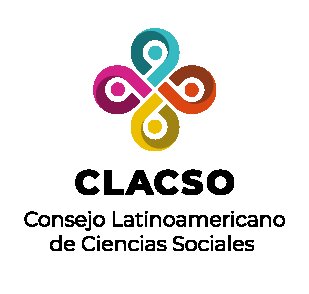Autores
Resumo
This paper is part of the research “Working conditions of the Social Work Program alumni of the University of Caldas in Manizales and La Dorada” carried out by the Critical Social Work research seedbed of the University of Caldas between 2019 and 2022. The objective is to understand how the valorization of value emerges and operates in the capitalist society, the particularities of reproduction and the world of work in peripheral countries to finally reveal the social function of Social Work in these scenarios during the current neoliberal phase. The ideas presented here were generated based on a bibliographic analysis and a document review that correspond to the theoretical foundation phase of the research. The theoretical-methodological analysis makes it possible to reveal that Social Work belongs, like any other salaried profession, to capitalist relations and it is characterized both by alienating conditions and by emancipatory potentialities.
Referências
Iamamoto, M. (2015). Serviço Social em tempo de capital fetiche. Capital financeiro, trabalho e questão social. Cortez editora.
Iamamoto, M. (2009). The social-occupational spaces of the social worker. At CFESS. ABEPSS, Serviço Social: Direitos Sociais e Competências. (pp. 402-442). Brasilia.
Iamamoto, M. (2003). El servicio social en la contemporaneidad: Trabajo y formación profesional. Cortez editora.
Iamamoto, M. & Carvalho, R. (1984) Social Relations and Social Work. 3 ed. Alfa S.A.
Mallardi, M.W & Fernández, E.N. (comp). (2019). Cuestión social y políticas sociales. Crítica a sus fundamentos y expresiones contemporáneas. Antentina. Puka editora.
Mandel, E. (1999). Late Capitalism, Verso.
Marini, R.M. (2012). O ciclo do capital na economía dependente. In C. Ferreira, J. Osorio & M. Luce. (Orgs). Parrão de reproducción do capital (pp.21-35). Boitempo.
Martínez, M.E. (1981). Historia del trabajo social en Colombia 1900-1975. Tecnilibros.
Mark, K. (2009). El Capital. Libro I. Capítulo VI (inédito). Resultados del proceso inmediato de producción. Siglo XXI.
Mark, K. (1976). El Capital. Crítica de la economía política. Tomo I. Fondo de Cultura Económica.
Mark, K. (1975). El Capital. Crítica de la economía política. Tomo II. Fondo de Cultura Económica.
Mark, K. (1968). El Capital. Crítica de la economía política. Tomo III. Fondo de Cultura Económica.
Netto, J.P. (2012). Capitalismo Monopolista e Serviço Social. Cortez Editora.
Netto, J.P. (2003). Cinco notas a propósito de la “cuestión social”. In E. Borgianni; Y. Guerra & C. Montaño. Servicio Social Crítico. Hacia la construcción del nuevo proyecto ético-político profesional (pp. 43-55) Cortez Editora.
Osorio, J. (2005). Patrón de reproducción del capital, crisis y mundialización. In Semináro Internacional REG GEN: Alternativas Globalização (8-13 october, 2005, Rio de Janeiro, Brasil). UNESCO. http://bibliotecavirtual.clacso.org.ar/ar/libros/reggen/pp17.pdf
Plazas Neisa, R. (2021). Social work as salaried work: reflections on the particularities of contemporary Colombian social training. Revista Eleuthera, 23(1), 217-240. http://orcid.org/0000-0002-3204-7458
Quintero, S. (2022). Trabajo Social como profesión asalariada. [unpublished].
Santana do Amaral, A. & Cesar, M.J. (2009). O trabalho do assistente social nas empresas capitalistas. http://cressrn.org.br/files/arquivos/G2cm832r29W2oX2IHY6P.pdf
Vidal-Molina, P. (2008). An approach to the working conditions of social work: food for thought and debate about the present state of affairs in the professional practice, Revista Perspectivas,19,129-155. https://doi.org/10.29344/07171714.19.1240
Vidal-Molina P. & Oliveira, E.A. (2021). Labor reforms in Brazil and Chile: consolidation of overexploitation. A field for Latin American social work. Revista Eleuthera, 23(1), 302-317. http://www.scielo.org.co/scielo.php?script=sci_abstract&pid=S2011-45322021000100302

 PDF (Español)
PDF (Español)
 FLIP
FLIP





























